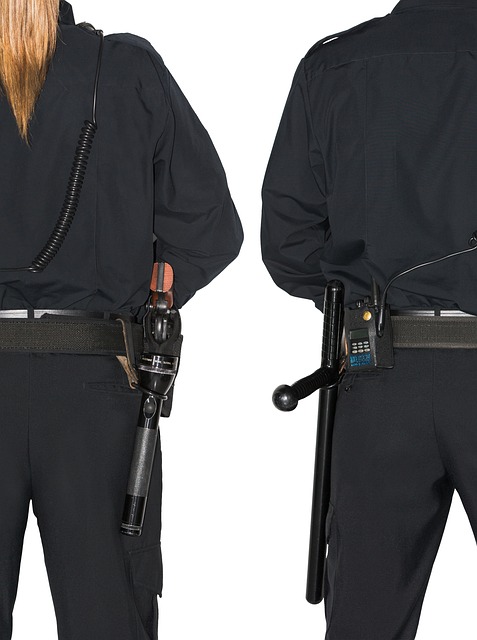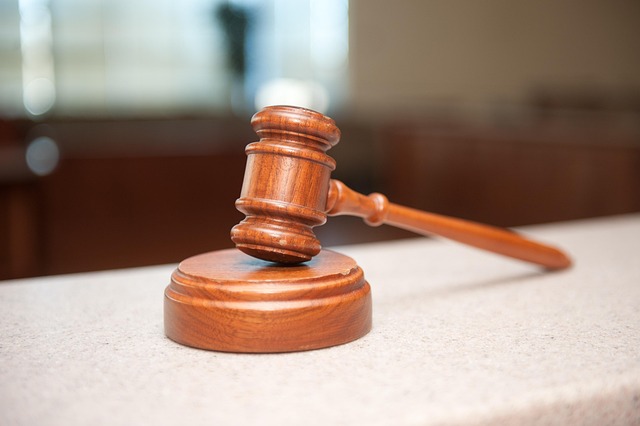Mastering criminal procedure law fundamentals is crucial for C-Level executives navigating complex white-collar and economic crimes. Proficiency in evidence collection, interrogation, and legal defenses enables organizations to mitigate risks, foster ethical conduct, and prevent crises. Understanding basics like the right to remain silent, probable cause, and fair delays ensures legal standards and integrity in investigations, potentially leading to case dismissal. Knowing protocols for search warrants, evidence seizure, and digital forensics preserves case integrity and accountability, deterring future crimes. Adhering to these procedures strengthens cases, improves outcomes, and cultivates fairness in high-level investigations. Post-investigation actions, guided by criminal procedure law, help organizations respond effectively, mitigating potential indictment and reputational damage.
In today’s complex business landscape, C-Level investigations are crucial for ensuring corporate integrity. This comprehensive guide delves into the essential aspects of high-level inquiries, starting with “Setting the Stage”: understanding the growing need for such investigations. We demystify key concepts of Understanding Criminal Procedure Law Basics, providing a solid foundation for effective inquiries. From initiation and evidence collection to post-investigation actions, this article outlines critical steps, legal frameworks, and best practices within the realm of C-Level investigations.
- Setting the Stage: Understanding the Need for C-Level Investigations
- Demystifying Criminal Procedure Law Basics: A Foundation for Effective Inquiries
- Initiating the Investigation: Key Steps and Legal Frameworks
- Evidence Collection and Admissibility: Navigating Legal Obstacles
- Post-Investigation Actions: From Reporting to Court Proceedings
Setting the Stage: Understanding the Need for C-Level Investigations

In today’s complex business environment, understanding the need for C-Level investigations is more crucial than ever. As organizations navigate an increasingly intricate web of regulations and ethical considerations, especially in the realms of white-collar and economic crimes, ensuring transparency and accountability at the highest levels becomes paramount. The implications of missteps can be devastating, not just for individual executives but also for the entire philanthropic and political community they serve.
Grappling with these challenges demands a solid grasp of criminal procedure law basics. This is not merely about understanding the legal framework; it’s about leveraging knowledge of investigative processes to achieve extraordinary results. By recognizing the nuances of evidence collection, interrogation techniques, and legal defenses, organizations can proactively mitigate risks and foster an environment where ethical conduct is the norm, thereby shielding themselves from potential crises that could disrupt their operations and harm their reputation.
Demystifying Criminal Procedure Law Basics: A Foundation for Effective Inquiries

Understanding Criminal Procedure Law Basics is paramount for effective investigations at the C-Level, especially when navigating complex cases involving white-collar and economic crimes. This legal framework provides a structured approach to ensure due process and fairness throughout the inquiry, ultimately aiming for a complete dismissal of all charges if the evidence warrants it.
The intricacies of Criminal Procedure Law guide every step of an investigation, from the initial gathering of evidence to the presentation in court. Key aspects include the right to remain silent, probable cause requirements for searches and seizures, and the protection against unreasonable delays. By grounding investigations in these basics, professionals can ensure adherence to legal standards, maintain the integrity of the process, and ultimately support a fair outcome, including potential jury trials if necessary.
Initiating the Investigation: Key Steps and Legal Frameworks

When initiating an investigation at the C-Level, understanding criminal procedure law basics is crucial. The process begins with identifying reasonable grounds for suspicion, often requiring a thorough review of facts and evidence within the organization. This includes examining financial records, reviewing internal policies, and analyzing patterns of behavior that might suggest misconduct. Once grounds are established, investigators must adhere to legal frameworks governing search warrants, seizure of evidence, and interrogation protocols to avoid indictment.
The key steps involve gathering intelligence, conducting interviews with relevant personnel, and preserving digital forensics. It’s essential to maintain the integrity of the investigation by ensuring transparency, documenting every step, and adhering to ethical standards. This approach not only strengthens the case but also fosters a culture of accountability within philanthropic and political communities, ultimately helping to avoid indictment for white-collar and economic crimes.
Evidence Collection and Admissibility: Navigating Legal Obstacles

In the realm of investigations at the C-level, understanding the intricacies of criminal procedure law is paramount. When navigating white collar and economic crimes cases, professionals must grasp the basics of evidence collection and its admissibility in court. This involves meticulously following legal protocols to ensure the integrity and validity of collected evidence. By adhering to these guidelines, investigators can fortify their case strength, thereby enhancing prospects of winning challenging defense verdicts for both corporate and individual clients.
The process demands a delicate balance between gathering compelling proof and respecting the rights of those under scrutiny. This is particularly crucial in complex financial investigations where subtle nuances in evidence handling can significantly impact outcomes. Proficiency in criminal procedure law equips professionals with the tools to navigate these labyrinthine legal landscapes, ultimately fostering fair and just resolutions for all parties involved.
Post-Investigation Actions: From Reporting to Court Proceedings

After a thorough C-Level investigation, the next critical phase involves post-investigation actions, which can be complex and multifaceted. The primary goal is to translate the findings into actionable steps while ensuring adherence to the nuances of criminal procedure law basics. This includes preparing comprehensive reports that document the investigative process, results, and recommendations for any necessary legal actions. These reports serve as a critical tool for both internal decision-making and external communication with relevant stakeholders, including corporate and individual clients facing allegations of white-collar and economic crimes.
The subsequent steps may lead to various outcomes, from alternative dispute resolution methods like mediation or negotiation to initiating court proceedings. Understanding the criminal justice system’s intricacies is vital in navigating these actions effectively. By doing so, organizations can ensure that their responses are not only legally sound but also proportional to the allegations, thereby avoiding indictment and mitigating potential reputational damage.
In navigating complex corporate investigations, a thorough understanding of criminal procedure law is essential. This article has demystified key aspects, from setting the stage to post-investigation actions, equipping readers with a solid foundation for effective inquiries. By following the outlined steps and legal frameworks, organizations can ensure their investigations are comprehensive, legally sound, and ultimately, transformative in addressing misconduct. Mastering these processes is crucial for maintaining integrity, upholding justice, and fostering trust within the corporate landscape.






